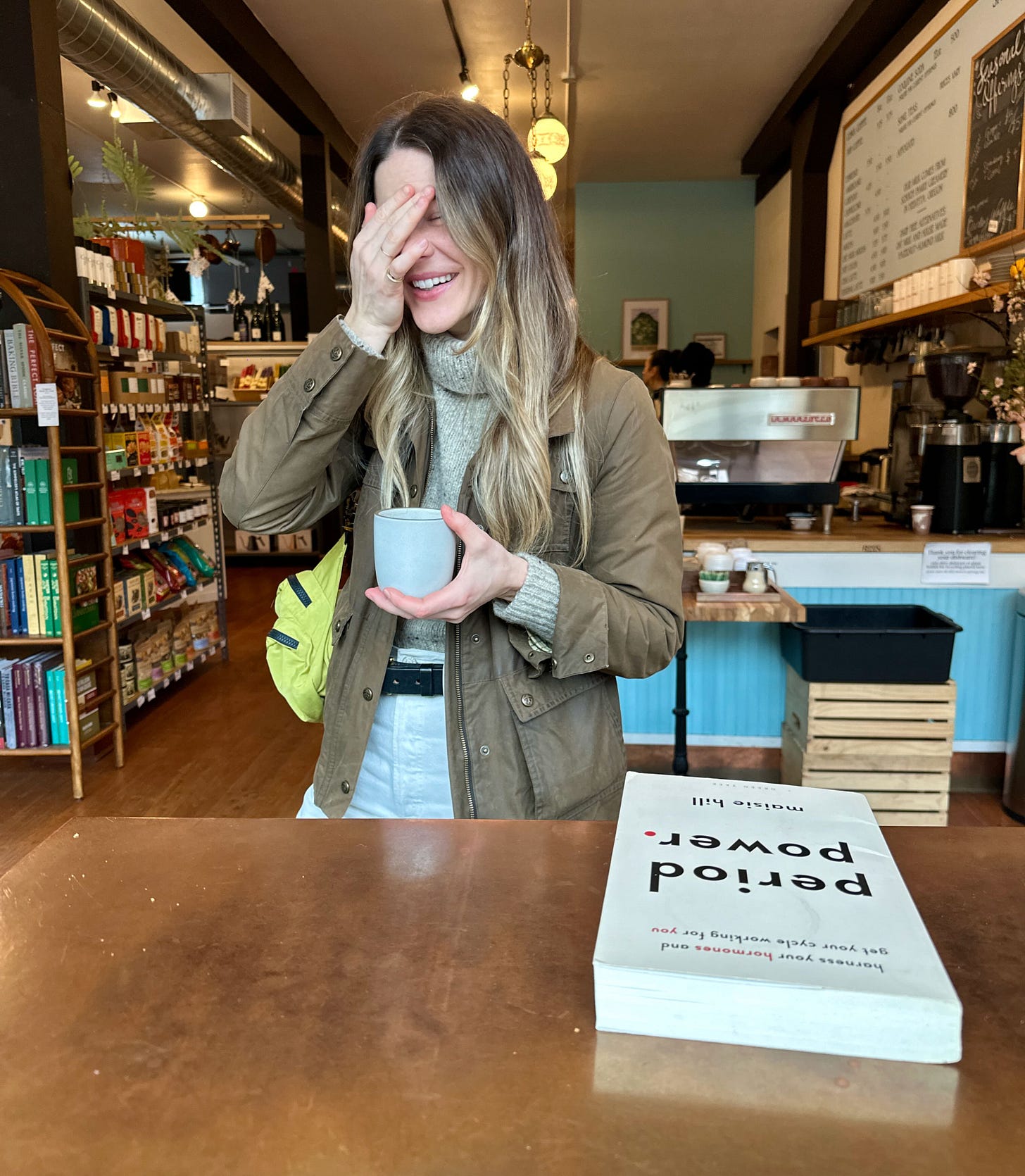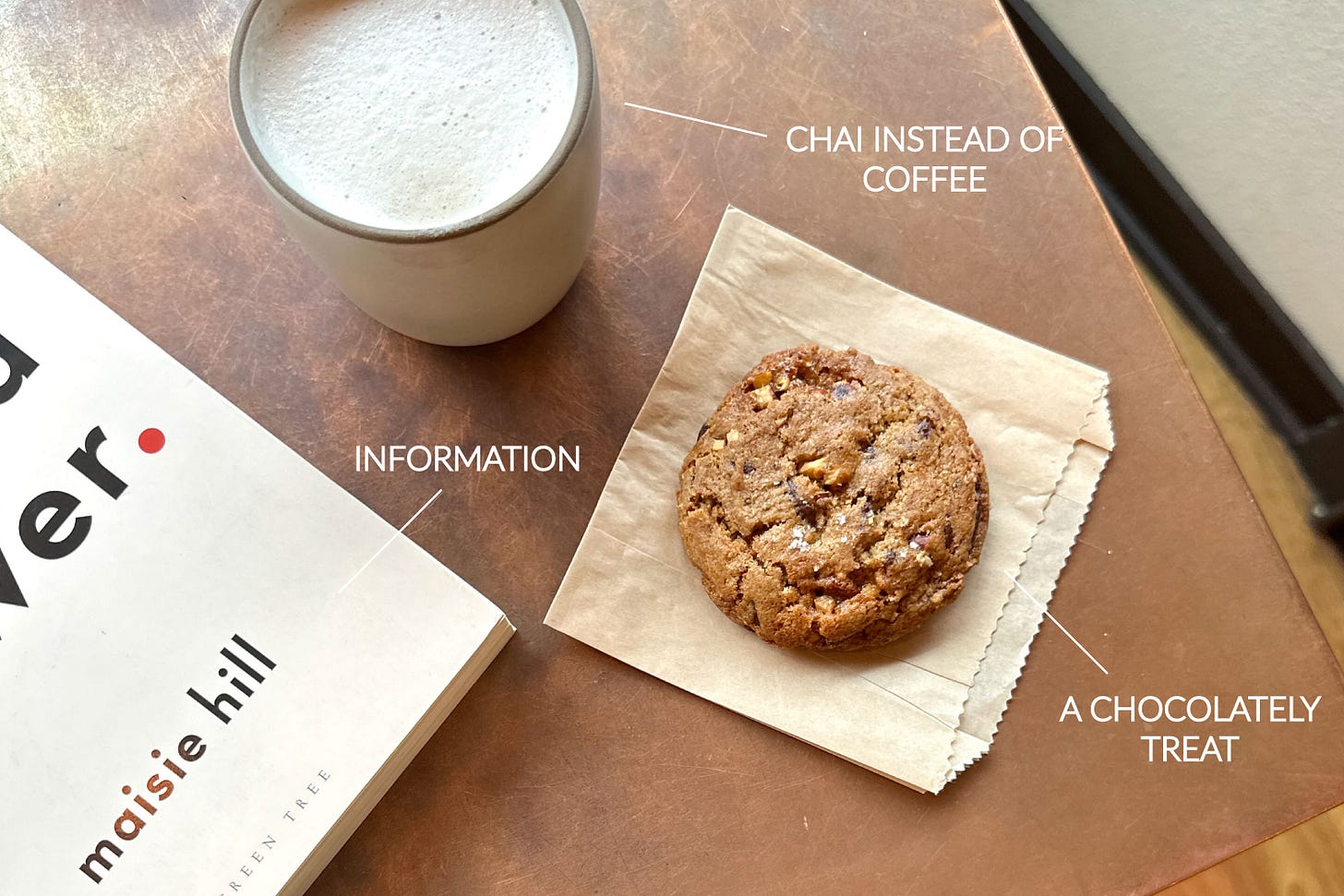Issue #132: How Tracking My Cycle Changed Everything
A roadmap (and brownies) for feeling better. ♥️
Morning Person is a weekly newsletter packed with obsessively-curated recommendations and ideas—let’s get to it!
📺 “Regime” on Max: Kate Winslet stars as the paranoid kleptocrat of a small “Middle European” country, in this miniseries from Will Tracy, the writer behind ‘The Menu’ and “Succession.” Her advisors create an echo-chamber of flattery that legitimizes her fear that her rule is rotting from within, including deadly mold spores in her residence. It’s funny in a “Veep” sort of way, but terrifying given the reality of certain dictators who have major media outlets and politicians eating out of their hands, even as they commit acts of terror.
📚 Ellipses by Vanessa Lawrence: A relationship between a mentor and mentee goes toxic when Lily, a 30-something writer, is taken under the wing of Billie, the millionaire CEO of a cosmetics company. Told largely through text exchanges which escalate from micro-aggressive to unbridled manipulation, this novel, released today, is really the story of how Lily learns to come into her own as a biracial, bisexual woman finding her own way in New York City. P.S. Today is a big book release day! I also have The Hearing Test by Eliza Barry Callahan, Expiration Dates by Rebecca Serle, and Bye, Baby by Carola Lovering high on my to-read list.
🎧 “Handsome” Podcast: The queer(er) “Smartless” I didn’t know I needed, but am so happy exists. The dynamic between cohosts Tig Notaro, Fortune Feimster, and Mae Martin is so infectious, I found myself giggling approximately two minutes into a conversation on the word “panties.” The concept is simple: In each episode, the three field questions from a friend—Elliot Page asks if they believe in ghosts, Stephen Colbert asks about “woo” beliefs, and Gabrielle Union asks about childhood crushes. It is, in a word, delightful.
P.S. I tried to get into Shōgun, but couldn’t stand the leader of the English ship and had to stop watching 30 minutes in. Is it worth continuing? Also, don’t forget to vote on our March Book Club book and thank you for your Japan recs in the comments here! x
Before I begin: This post mentions suicide and other mental health topics that may be triggering. It is also in no way a replacement for talking with your doctor and therapist, if you struggle with hormonal symptoms.
When comedian Tig Notaro was diagnosed with bilateral breast cancer in 2012, she joked that she must have made so many jabs about her breasts being small that they’d finally conspired, “Let’s kill her.”
Notaro’s dark joke came to mind a few months ago after a sleepless night I spent choking back sobs, moving from my bed to my couch entirely enveloped in misery. I had nothing specific to be sad about, yet my mind played the top tracks: every small misstep and anguished memory took turns haunting me all night. It felt, as it always does at the start of my luteal phase, like my hormones had decided, “Let’s kill her.”1
I’ve been on birth control for nearly as long as I’ve been menstruating, beginning with “the pill” in high school, then switching to a hormonal IUD (the Mirena) eight years ago. My period has always been something to be managed; a monthly inconvenience that only mattered insofar as making sure I had tampons on hand. I knew almost nothing about what was going on in my body, and would have been hard-pressed to explain even the basics of ovulation and menstruation in my early twenties. My period was “easy” according to the single, narrow, factor I learned to judge it by: I bleed lightly each month.
I believed this narrative so devoutly, that I completely pushed aside my other symptoms. It came as a genuine shock to me when my doctor in Portland suggested that I track my menstrual cycle. A few months after downloading an app that helped me track my first and last day of menstruation each month, I began to recognize clear patterns.
As soon as my estrogen drops post-ovulation (more on this below), my mood begins to decline—and then plummet. At first, I feel a bit more sensitive to things that normally wouldn’t make me sad in the least, then sink into acute depression, which occasionally includes suicidal ideation that is incomprehensible to me at other points in my cycle, for about 24 hours. As soon as the bell jar lifts, it shifts into brain fog, then come the night sweats, cravings, and breakouts. It’s difficult not to feel betrayed by my own body when this happens, which may be part of why it took me this long to recognize, acknowledge, and, finally, work with my period and even develop an appreciation for it.
Keep reading with a 7-day free trial
Subscribe to morning person to keep reading this post and get 7 days of free access to the full post archives.







